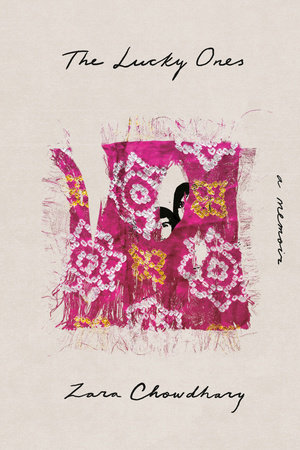READERS GUIDE
The Lucky Ones Discussion Questions1. The author includes excerpts of reports detailing anti-Muslim crimes in India. How do these reports help you understand what was happening in India at the time?
2. What does the role of fire play in the author’s story?
3. “A name is a powerful thing,” Chowdhary writes, especially in India, where it can label you immediately. What does your name mean? What does it mean to you?
4. Belonging is an important theme threaded within this book. The author writes, “It’s hard to be able to imagine belonging anywhere when you don’t know what it feels like to belong in your home.” How does this sense of displacement and unbelonging pervade the author’s life?
5. “Where you grow up doesn’t have to be who you become,” Chowdhary’s mother says. In what ways do our environments shape us? How have you grown with or shed the aspects of your childhood environment?
6. The Lucky Ones is a memoir about family. But it also offers historical lessons about India’s relationship with its Muslim population. How did the historical context shape your understanding of the story and the themes of the book?
7. Community plays a crucial role in the author’s life. What are the different communities the author is a part of? How do these communities abandon and protect her and her family?
8. Chowdhary lived in her multigenerational home for years before her father had to temporarily move them to another town for work. This two-year stay, she writes, is “the most beautiful of our childhood.” How do these two years offer growth in ways that her childhood home does not?
9. When the author’s family moves to Baroda, she writes that the people there reflect the real mixed demographic of India as opposed to the homogenous ghetto she’s lived in her whole life. How does diversity in one’s life contribute to a more positive and accurately representative environment?
10. Religion is a major propellant throughout this book. How does religion—considering one’s perspective of and adherence to it—affect the author’s life in India?
11. How do the everyday choices and sacrifices made by Zara’s family members reflect broader themes of resilience and survival in the face of communal violence? Consider how each family member’s actions contributed to their collective survival and the impact these decisions had on them.

